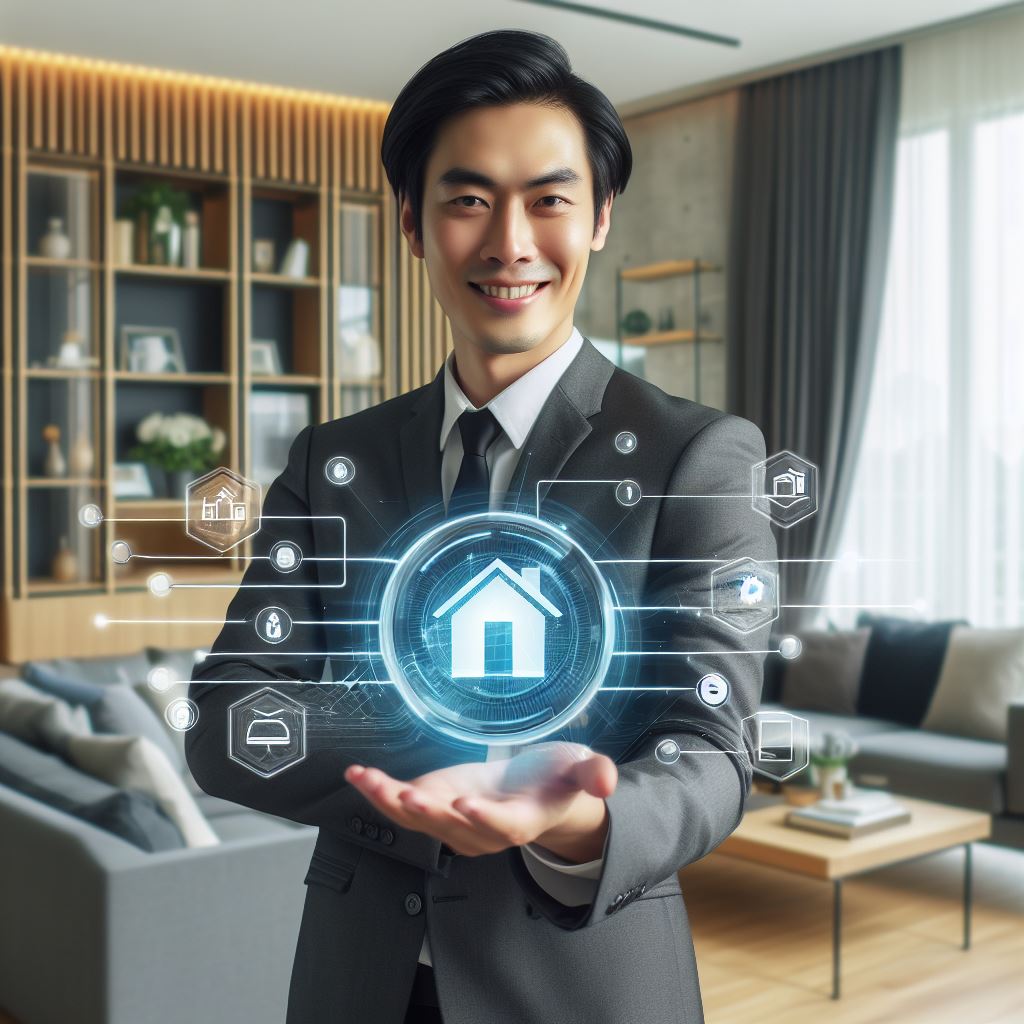Introduction
IoT integration in modern real estate practices revolutionizes the way properties are managed and operated.
It refers to the implementation of internet-connected devices and sensors in buildings to enhance efficiency and functionality.
IoT integration allows for real-time data collection and analysis, enabling property owners and managers to make informed decisions.
This technology offers numerous benefits, including energy optimization, improved security, and increased tenant satisfaction.
With IoT integration, property managers can remotely control and monitor various aspects of buildings, such as temperature, lighting, and security systems.
This not only saves time and resources but also enhances the overall experience for occupants.
Furthermore, IoT integration enables predictive maintenance, allowing for the identification of potential issues before they become major problems.
This proactive approach helps to prevent costly repairs and minimize downtime.
Moreover, IoT integration enhances sustainability efforts by optimizing resource usage and reducing environmental impact.
It enables the implementation of energy-efficient practices such as smart lighting and heating systems.
Additionally, IoT integration provides valuable insights into occupant behavior and preferences, allowing for the customization of spaces to meet individual needs.
This personalization enhances tenant satisfaction and retention rates.
In essence, IoT integration is transforming real estate practices by revolutionizing property management, improving efficiency, and enhancing the overall occupant experience.
Its implementation is crucial for modern real estate practices, as it offers a wide range of advantages for both property owners and tenants.
Benefits of IoT Integration in Real Estate
Enhanced efficiency and automation
The integration of IoT in modern real estate practices brings numerous benefits to the industry.
One of the major advantages is enhanced efficiency and automation.
Smart home technology enables homeowners to automate various tasks, such as controlling lights, thermostats, and appliances, resulting in increased convenience and comfort.
Streamlined property management allows real estate companies to monitor and manage properties efficiently, reducing manual efforts and improving overall operations.
Improved energy management and sustainability
IoT integration in real estate also provides improved energy management and promotes sustainability.
Smart thermostats help optimize energy usage by adjusting temperature settings based on occupants’ behavior and preferences, resulting in energy savings.
Energy monitoring systems allow real estate stakeholders to monitor the energy consumption of properties, identify inefficiencies, and make informed decisions for energy optimization.
Enhanced security and safety
IoT integration in real estate ensures enhanced security and safety measures for both property owners and tenants.
Smart surveillance systems utilize connected cameras and sensors to monitor properties, providing real-time video feeds and alerts for potential threats or suspicious activities.
Access control and monitoring enable authorized individuals to remotely control and monitor property entry, minimizing security risks and unauthorized access.
Enhanced tenant experience
Lastly, IoT integration enhances the overall tenant experience by providing personalized settings and convenient property management options.
Personalized settings and preferences allow tenants to customize their living environment, adjusting lighting, temperature, and other factors to their liking.
Remote property management allows real estate companies to handle tenant requests, maintenance issues, and other property-related tasks efficiently, improving tenant satisfaction and experience.
In fact, the integration of IoT in modern real estate practices offers significant benefits, including enhanced efficiency and automation, improved energy management and sustainability, enhanced security and safety measures, as well as an improved tenant experience.
Embracing IoT technologies in the real estate industry paves the way for a smarter, more efficient, and comfortable living and working environment for both property owners and tenants.
Read: Adapting to Millennials’ Real Estate Preferences
IoT Integration in Real Estate Operations
In today’s modern real estate practices, the integration of Internet of Things (IoT) technology has become increasingly prevalent.
This integration offers numerous benefits and improvements for property monitoring, maintenance, building management, communication, and collaboration.
This blog section explores the various ways IoT is transforming real estate operations.
Property monitoring and maintenance
One of the key areas where IoT has made a significant impact is in property monitoring and maintenance.
Through the use of sensors, leaks and water damage can be quickly detected, minimizing potential risks and preventing costly damages.
Additionally, IoT enables predictive maintenance for HVAC systems, allowing for proactive repairs and reducing downtime.
Smart building management
IoT also plays a vital role in smart building management.
Automated lighting and climate control systems can be seamlessly integrated, providing energy-efficient solutions and optimizing comfort for occupants.
Real-time occupancy monitoring allows for better space utilization and resource allocation, enhancing overall efficiency and cost-effectiveness.
Seamless communication and collaboration
Furthermore, IoT facilitates seamless communication and collaboration within real estate settings.
IoT-enabled conference rooms and workspaces offer advanced connectivity options, enabling efficient remote meetings, file sharing, and document collaboration.
Additionally, virtual property tours powered by IoT technology provide potential buyers with immersive experiences and convenient access to explore properties remotely.
In short, IoT integration in modern real estate practices has revolutionized operations in several crucial aspects.
Property monitoring and maintenance benefit from sensors detecting leaks and water damage, as well as predictive maintenance for HVAC systems.
Smart building management is significantly improved through automated lighting, climate control, and real-time occupancy monitoring.
Lastly, IoT enables seamless communication and collaboration through IoT-enabled conference rooms, workspaces, and virtual property tours.
By embracing IoT technology, real estate professionals can optimize efficiency, reduce costs, and enhance the overall experience for both property owners and occupants.
Read: 2024’s Impactful Real Estate Marketing Tactics
Challenges and Considerations in IoT Integration
The integration of IoT in modern real estate practices brings numerous benefits, but it also presents challenges and considerations that need to be addressed to ensure successful implementation.
In this section, we will explore some of the key challenges and considerations in IoT integration.
Data privacy and security concerns
One of the primary concerns when integrating IoT in real estate is ensuring data privacy and security.
With the increasing number of connected devices, vulnerabilities and risks also increase.
Hackers can exploit these vulnerabilities, compromising the privacy and security of sensitive data.
It is crucial to implement robust cybersecurity measures and protocols to protect against these threats.
Interoperability and integration issues
Another challenge in IoT integration is achieving interoperability and seamless integration between different devices and systems.
In real estate, multiple devices such as smart locks, thermostats, and security systems need to communicate with each other to provide a connected and automated experience.
Compatibility issues can arise, making it difficult for these devices to work together effectively.
Standardized communication protocols need to be established to ensure smooth data sharing and integration.
Cost and scalability considerations
Implementing IoT in real estate comes with significant costs, including the initial investment and ongoing maintenance expenses.
IoT devices, sensors, and infrastructure need to be installed and maintained.
These costs can potentially be a barrier to adoption, especially for smaller real estate companies. Additionally, scalability and future-proofing must be considered.
Technology is constantly evolving, and solutions need to be adaptable to incorporate future advancements seamlessly.
In general, while IoT integration offers numerous benefits in modern real estate practices, there are various challenges and considerations that must be addressed.
Data privacy and security should be a top priority, with robust cybersecurity measures and protocols in place.
Interoperability issues can be mitigated by establishing compatibility standards and communication protocols.
Additionally, the cost of implementation and maintenance should be carefully evaluated, and scalability should be ensured to future-proof investments.
By addressing these challenges and considerations, real estate companies can leverage the power of IoT to streamline operations and enhance the overall experience for both property owners and tenants.
Read: Next-Gen CRM Tools for Savvy Real Estate Agents

Case Studies of Successful IoT Integration in Real Estate
The integration of the Internet of Things (IoT) in the real estate industry has revolutionized modern practices, improving efficiency, reducing costs, and enhancing experiences for both residential and commercial properties.
Numerous case studies have demonstrated the successful implementation of IoT technology in various real estate settings.
Smart buildings and commercial spaces
Energy-efficient office buildings
Many office buildings have integrated IoT technology to optimize energy consumption and reduce costs.
Sensors and connected systems track occupancy, lighting, and temperature, allowing for intelligent control and efficient resource management.
Through this integration, office buildings have seen a significant reduction in energy consumption and cost, benefiting both the environment and the bottom line.
Retail spaces with smart lighting and customer analytics
IoT-enabled retail spaces have leveraged smart lighting systems and customer analytics to improve customer experiences and increase sales.
Smart lighting adjusts automatically based on external conditions and customer preferences, creating inviting and personalized atmospheres.
Customer analytics provide valuable insights on shopping behavior and preferences, enabling retailers to tailor their offerings and marketing strategies accordingly.
Smart homes and residential properties
Connected homes with automated control systems
Smart homes equipped with IoT technology offer homeowners convenience, comfort, and energy savings.
Connected devices and automated control systems allow for remote management of various household operations, such as lighting, heating, and security.
Homeowners can control and monitor their homes through mobile applications, optimizing resource usage and enhancing overall living experiences.
Rental properties with IoT-based security systems
Rental properties have integrated IoT technology for improved security and convenience.
IoT-based security systems offer features such as smart locks, video surveillance, and motion sensors, providing enhanced safety for tenants.
Landlords can remotely monitor the property, grant access, and receive real-time alerts, minimizing risks and ensuring peace of mind for both parties.
These case studies highlight the tangible benefits of IoT integration in real estate.
Energy-efficient office buildings and retail spaces equipped with smart lighting and customer analytics have experienced improved operational efficiency and increased revenues.
Similarly, connected homes with automated control systems and rental properties with IoT-based security systems have enhanced the living experiences and security of residents.
By harnessing the power of IoT technology, the real estate industry is transforming the way properties are managed and experienced.
The successful case studies presented here demonstrate the significant advantages of embracing IoT integration, ranging from cost savings and energy efficiency to improved customer experiences and enhanced security.
As IoT technologies continue to advance, the potential for further innovation in the real estate sector is immense.
Real estate professionals who embrace IoT integration early on will position themselves for success in a rapidly evolving industry.
Read: Smart Homes: Revolutionizing Real Estate Sales
Explore Further: Virtual Tours: Boosting Your Sales
Future Trends and Possibilities of IoT Integration in Real Estate
Integration with artificial intelligence and machine learning
The integration of IoT with artificial intelligence (AI) and machine learning has the potential to revolutionize the real estate industry.
By using AI-powered algorithms, IoT devices can collect and analyze data to provide valuable insights.
For example, smart sensors can monitor energy usage patterns in buildings and suggest ways to optimize energy consumption.
Blockchain technology for secure property transactions
Blockchain, a decentralized and transparent digital ledger, can enhance the security and efficiency of property transactions.
By eliminating the need for intermediaries, such as banks or lawyers, blockchain technology can streamline the process and reduce costs.
Additionally, smart contracts can be used to automate and enforce the terms of real estate agreements.
Smart city integration and collaboration
The integration of IoT devices in real estate can contribute to the development of smart cities.
By connecting buildings, infrastructure, and utilities, IoT enables the seamless exchange of information and coordination between different systems.
This integration can lead to more efficient resource management, improved public services, and enhanced quality of life for residents.
IoT-enabled sustainable and eco-friendly buildings
IoT integration in real estate can play a crucial role in achieving sustainability goals.
By connecting various devices and systems, such as HVAC, lighting, and water management, IoT can optimize resource usage and reduce energy consumption.
For example, sensors can detect occupancy levels in rooms and adjust temperature and lighting accordingly, resulting in significant energy savings.
In a nutshell, the future of IoT integration in real estate holds immense potential.
The combination of IoT with AI and machine learning can provide valuable insights for optimizing building operations.
Blockchain technology can enhance the security and efficiency of property transactions.
The integration of IoT in smart cities can lead to improved resource management and public services.
Lastly, IoT can contribute to sustainable and eco-friendly buildings, reducing energy consumption and promoting environmental conservation.
Conclusion
IoT integration plays a crucial role in modern real estate practices. It allows for improved efficiency, management, and security.
Real estate professionals should embrace IoT technologies to stay competitive and provide better services to their clients.
As we move forward, the future of IoT integration in real estate looks promising. With advancements in technology, the possibilities are endless.
IoT has the potential to transform the industry, making it smarter, more sustainable, and convenient for both professionals and clients.
By integrating IoT devices and systems, real estate professionals can streamline their operations, enhance marketing strategies, and provide personalized experiences.
Overall, embracing IoT is not just a trend but a necessity for real estate professionals in this digital age.
Those who fully embrace IoT integration will have a competitive advantage and be able to cater to the evolving needs of clients.
As technology continues to evolve, real estate professionals must adapt and integrate IoT solutions to thrive in the future.




